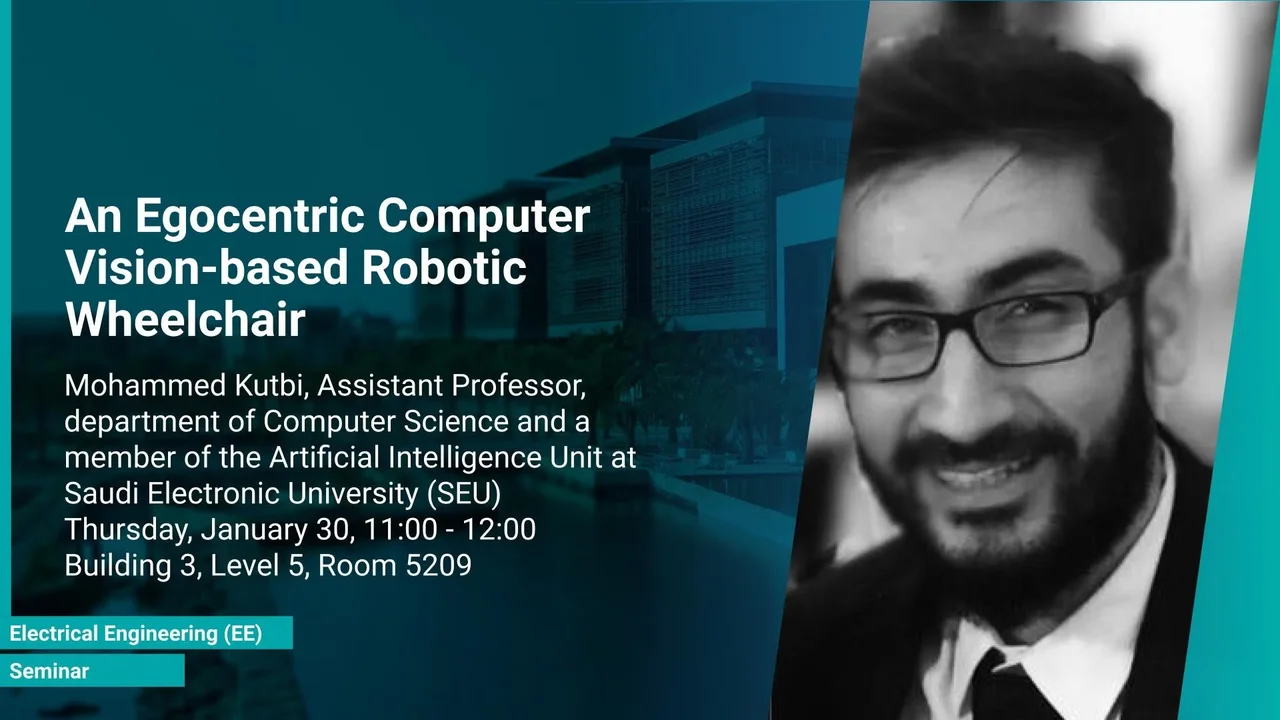
An Egocentric Computer Vision-based Robotic Wheelchair
- Mohammed Kutbi, Assistant Professor at the department of Computer Science and a member of the Artificial Intelligence Unit at Saudi Electronic University (SEU)
B3 L5 R5209
The emerging need to improve the quality of life for elderly and disabled individuals who rely on wheelchairs for mobility is our motivation for this work. Research on robotics wheelchair covers broad range from motion control, how to control the wheelchair movement, to complete autonomy.
Overview
Abstract
The emerging need to improve the quality of life for elderly and disabled individuals who rely on wheelchairs for mobility is our motivation for this work. Research on robotics wheelchair covers broad range from motion control, how to control the wheelchair movement, to complete autonomy. This talk will present an egocentric vision-based solution for motion control replaces physical joystick or any other means to control a wheelchair motion by an egocentric camera interface. Also it explores the use of the egocentric camera as an interface for human-robot interaction applications. Finally, the talk will cover a learning approach that can learn from wheelchair users past navigation experiences to improve its fully autonomous navigation system.
Brief Biography
Mohammed Kutbi is an assistant professor at the department of Computer Science and a member of the Artificial Intelligence Unit at Saudi Electronic University (SEU). His research interests lie in the broad areas of computer vision and robotics. Recent work includes motion segmentation, domain adaptation and human-robot interaction. He received his MS and Ph.D. from the department of Computer Science at Stevens Institute of Technology, and a BS from the department of Information Technology at King Abdulaziz University.